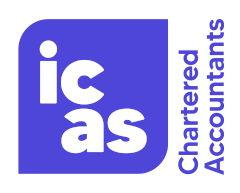The consequences of higher employer’s national insurance contributions
December 10, 2024
The impact of the Budget’s increases in national insurance contributions (NICs) are not limited to employers.
There were three main changes to employer’s NICs announced in the Budget, all of which will take effect from April 2025:
· The secondary threshold – the starting point for payment of employers’ NICs – will be cut from £9,100 to £5,000. The employee’s starting point remains at £12,570.
· The employer’s NICs rate will rise from 13.8% to 15.0%.
· The employment allowance, effectively an employer’s NIC credit, will be increased from £5,000 to £10,500.
The cut in the secondary threshold is the biggest revenue raiser and the change provoking the most complaints from businesses in the retail, leisure and hospitality sectors. It is easy to see why. The NICs cost of employing a part-timer earning £175 a week goes up from nil to £11.85 a week. That is before the 6.7% increase in the national living wage kicks in (or the double-digit increases for under-21s on the national minimum wage).
The Office for Budget Responsibility (OBR) anticipates that employers will react in a variety of ways, including restricting future pay rises, reducing hours and cutting back on recruitment. There may also be a rise in self-employment (where the maximum total NICs rate is now 6%) and individuals working through one-person companies, although this is a contentious area. The line between a contractor and an employee has seen plenty of legislation and litigation over recent years.
If you are already self-employed, then on purely tax grounds, the appeal of incorporating has been reduced by the rise in NICs. It had already been weakened by increased tax on dividends, which are now in many instances a more costly way for an owner-director to draw profits out of a company rather than taking a bonus.
If you are an employee, then one indirect benefit you may see because of the NICs rise is the introduction (or improvement) of salary sacrifice schemes for pension contributions and, possibly, electric company cars. Both can save the employer NICs, part of which is often passed on to the employee.
More detail on the change to employer’s NICs can be found here.
